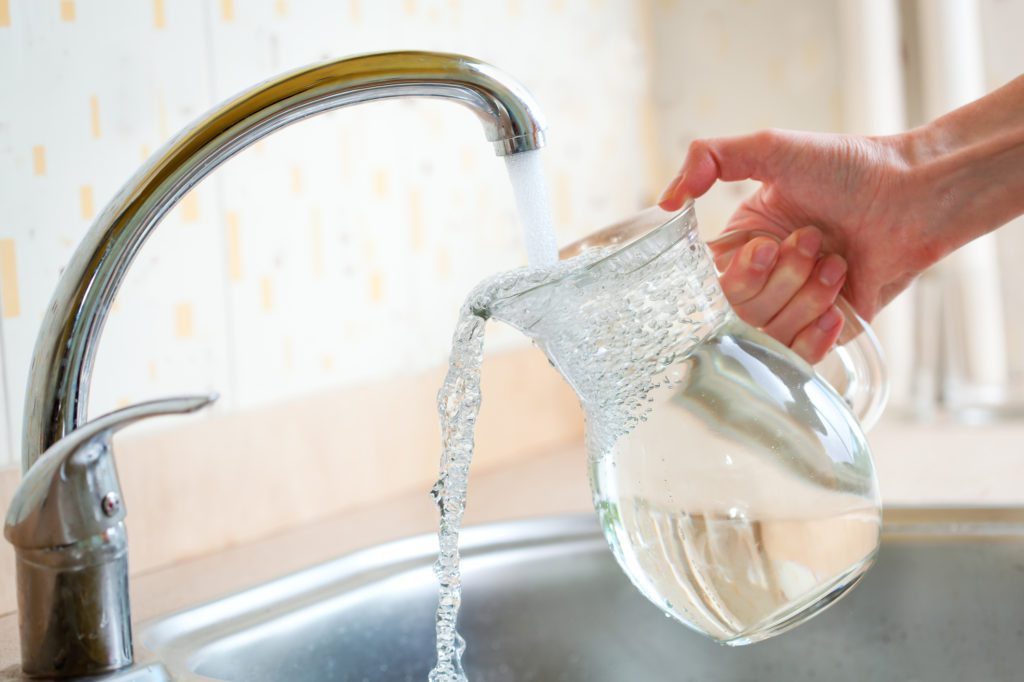Nobody wants to fill up a glass of water only to discover that it has a rusty appearance, taste, and smell. This is sometimes brought on by pipe problems in or around your home. Rusty water needs to be avoided regardless of the source. It could indicate a deeper problem, especially if your water is often clear and clean. You should contact a plumber as soon as you discover the sudden appearance of rust in your water. A qualified plumber should be able to identify the rust’s origin and propose a fix.
Стратегии Успешных Ставок в Starda Казино для Россиян
Игры в казино всегда привлекали людей своим азартом и возможностью выиграть крупную сумму денег. Но какие стратегии игры помогут увеличить шансы на успех и минимизировать риски? В этой статье мы рассмотрим несколько эффективных стратегий ставок в Starda Казино, которые особенно актуальны для российских игроков.
Мы все хотим выиграть больше, чем потратили, и оставить казино с полным кошельком. Но как это сделать? Можно ли разработать стратегию, которая гарантированно принесет успех? В этой статье мы рассмотрим различные подходы к игре в Starda Казино и выясним, какие из них могут быть наиболее эффективными для российских игроков. Готовы ли вы узнать секреты успешных ставок? Присоединяйтесь и давайте начнем этот захватывающий путь к победе!
Основные принципы успешных ставок в Starda Казино
Ставки в казино Starda – это увлекательное развлечение, которое может приносить как радость от выигрыша, так и разочарование от проигрыша. Чтобы повысить свои шансы на успех, российским игрокам рекомендуется использовать стратегии, которые помогут им принимать обдуманные и осознанные решения. Одной из таких стратегий является установление лимитов на размер ставок и длительность игры. Это позволяет избежать необдуманных решений и сохранить финансовую стабильность.
Еще одной полезной стратегией для успешных ставок в казино Starda является выбор игр с высокими процентами выплат. такие игры обеспечивают больше шансов на выигрыш и меньшие потери. Российским игрокам стоит обратить внимание на игровые автоматы с высокими коэффициентами выплат, а также на игры с низким преимуществом казино, такие как блэкджек или покер.
Также важно упорядочить свои финансы и установить банкролл – сумму денег, которую игрок готов потратить в казино. Это помогает избежать ситуации, когда игрок теряет больше денег, чем может позволить себе. Российским игрокам рекомендуется также использовать стратегию увеличения ставок после выигрышей и снижения после проигрышей. Это позволяет управлять рисками и повышает шансы на долгосрочный успех.
Наконец, одной из важных стратегий успешных ставок в Starda казино для россиян является умение управлять эмоциями. Во время игры важно сохранять спокойствие и не поддаваться эмоциональным всплескам. Такие эмоции могут привести к необдуманным решениям и большим потерям. Российским игрокам стоит помнить, что игра в казино должна быть источником развлечения, а не способом заработка. Соблюдение этих стратегий поможет российским игрокам увеличить свои шансы на успех в Starda казино.
Разнообразные стратегии для повышения шансов на выигрыш
Стратегия игры в казино – это важный аспект, который помогает увеличить шансы на успех и минимизировать потери. В Starda Казино для российских игроков есть несколько стратегий, которые могут быть полезными при различных игровых ситуациях. Одной из таких стратегий является стратегия управления банкроллом. Важно определить заранее, сколько вы готовы потратить на игру, и придерживаться этой суммы. Разделите свой банкролл на несколько частей и ставьте только часть от общей суммы на каждую игру. Это позволит вам играть более долго и увеличить вероятность выигрыша.
Еще одной стратегией успешных ставок в Starda Казино является выбор игр с высокими шансами на выигрыш. Некоторые игры, такие как блэкджек или видеопокер, имеют стратегии, которые можно изучить и применять во время игры. Это поможет вам принимать более обоснованные решения и увеличить свои шансы на успех. Кроме того, важно быть внимательным к акциям и бонусам, предлагаемым Starda Казино. Используйте доступные бонусы, чтобы увеличить свой банкролл и иметь больше возможностей для выигрыша.
Управление банкроллом: ключевой элемент успешных ставок
Стратегии успешных ставок в Starda Казино для россиян могут быть полезными для тех, кто стремится увеличить свои шансы на выигрыш. Во-первых, важно определиться с банкроллом и придерживаться его. Необходимо установить пределы на сумму, которую вы готовы потратить на игру, и не превышать их. Это поможет избежать финансовых потерь и сохранить контроль над игровым процессом.
Во-вторых, стоит изучить правила и стратегии различных игр, представленных в Starda Казино. Некоторые игры, такие как покер или блэкджек, требуют не только удачи, но и стратегии игры. Приобретение знаний и опыта в данных играх поможет повысить вероятность выигрыша. Важно помнить, что каждая игра имеет свои особенности и требует индивидуального подхода.
Третья стратегия успешных ставок в Starda Казино – умение управлять эмоциями. При игре на деньги легко поддаться азарту и сделать необдуманные ставки. Однако, чтобы сохранить свои финансы и не потерять слишком много, важно оставаться спокойным и рациональным. При возникновении неудачных ставок необходимо уметь остановиться и не продолжать игру ради восстановления убытков.
И, наконец, четвертая стратегия успешных ставок в Starda Казино – использование бонусов и промо-акций. Многие онлайн-казино предлагают различные бонусы новым и постоянным игрокам. Использование этих бонусов позволяет увеличить начальный банкролл и получить дополнительные шансы на выигрыш. Однако, перед использованием бонусов, необходимо внимательно ознакомиться с условиями и требованиями, чтобы избежать неприятных сюрпризов.
Анализ и прогнозирование: важные инструменты для эффективных ставок
Ставки в онлайн-казино Starda являются популярным видом развлечения среди российских игроков, и чтобы повысить свои шансы на успех, важно использовать стратегии ставок. Во-первых, одной из основных стратегий является управление банкроллом. Рекомендуется определить заранее свой бюджет на игру и придерживаться его. Также стоит установить лимиты на выигрыш и проигрыш, чтобы избежать потери больших сумм денег. Важно помнить, что игра в казино должна быть развлечением, а не способом заработка.
Второй важной стратегией является выбор игр с высокими шансами на выигрыш. Например, игры с высоким процентом отдачи (RTP) предлагают больше возможностей для успеха. Также стоит обратить внимание на игры с низким домашним преимуществом, такие как блэкджек или видеопокер. Кроме того, рекомендуется изучить правила и стратегии игры перед началом ставок. Это поможет игроку принимать более осознанные решения и увеличить свои шансы на выигрыш. Важно помнить, что везение не является гарантией успеха, поэтому использование стратегий ставок может быть полезным инструментом для увеличения своих шансов на выигрыш в Starda Казино.
В заключение, мы надеемся, что эти стратегии помогут вам повысить свои шансы на успех в Starda Казино. Помните, что игра в азартные игры всегда связана с риском, поэтому важно играть ответственно и устанавливать предельные лимиты для себя. Используйте предложенные стратегии как руководство, но не забывайте, что в конечном итоге удача также играет роль. Удачи вам и приятной игры!
Contact Eco pro plumbing for the best plumber in Cambridge. They are best known for offering various services at affordable prices. They also provide the best water heater repair in Cambridge. Visit their website to learn more about the services they offer. You can also get a free quotation for your concern.
Sources of rusty water
- Corroded Pipes
Some people don’t even realize they are in danger of pipe corrosion. Even if your well is maintained, the pipes that link it to your home may still impact your water supply. Well water factors, pipe factors, and environmental factors can influence the likelihood of corrosion.
Water with a pH lower than 7 (acidic water) is more likely to corrode your pipes by pulling metals from them. If you have plastic pipes, the water may still attempt to leach the substance out, but it is unlikely to result in rust-colored water.
- Untrusted well casing
If your well casing is steel (rather than plastic) and is more than a few years old, it is likely rusted inside. This does not necessarily imply that you must replace the well casing because it is beyond repair. To be safe, you should have an inspection if you notice corrosion and think the casing is to blame.
- Naturally Occurring Iron
Due to the naturally occurring iron in the soil, you might not have been aware that your well water contains iron. For instance, if the orange tint is very slight, you may not notice it until you try to take a bath.
Over time, particularly during droughts, more iron may appear in your well water. The reason for this is that during a drought, your well’s aquifer may deplete and begin to draw water from another aquifer nearby.
- Municipal or Public Water Source
There are occasions when the problem is not with anything inside your house but the public or municipal water supply. The city-operated line may contain a water main break. Call your neighborhood water supply to see if there is a problem.
- The faucet
Over time, the faucets will rust and deteriorate. It’s probably the reason you’re noticing the rusty water at one faucet. Replace the old, worn-out fixture if you can. Contact a professional for further assistance if you don’t have the proper equipment.
Patterns that help identify the source of rusty water
You need to pay attention to when and how you notice the problem if you want to pinpoint the source of the rust in your water. Here are three typical patterns that both homeowners and plumbers can use to determine where the source of the rust may be:
- Sudden rust appearance
If rust starts to show up where it has never previously, the issue may be specific to your neighborhood. Construction damage, water main breaks, and other regional problems can cause rust in the water. If you think this is the case, you should immediately speak with your water provider.
- Hot water causes rust to appear.
If you only notice rust when the hot water is turned on, your water heater is probably the source of the issue. Water heaters may have sediment buildup or start to rust and corrode, which can spread to your faucets.
- In the morning, rust emerges with both hot and cold water.
When you turn on the faucet in the morning and detect rust, your pipes are probably to blame. Pipes may corrode and rust outside the interior after many years of use. The pipes in older homes are more susceptible to this.





